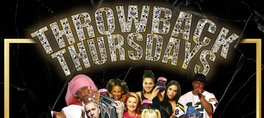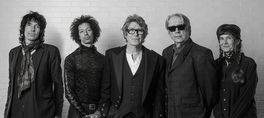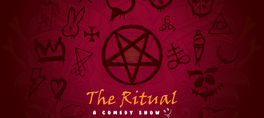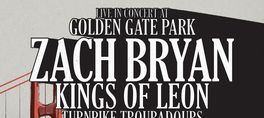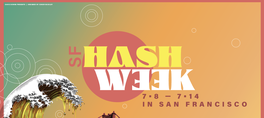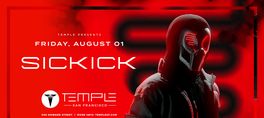Wed June 18, 2014
Peter Orlovsky, a Life in Words: Intimate Chronicles of a Beat Writer
SEE EVENT DETAILS
with Bill Morgan, Joanne Kyger, and Michael McClure
Celebrating the release of
Peter Orlovsky, a Life in Words: Intimate Chronicles of a Beat Writer
by Bill Morgan
from Paradigm Publishers
Until now, the poet Peter Orlovsky, who was Allen Ginsberg's lover for more than forty years, has been the neglected member of the Beat Generation. Because he lived in Ginsberg's shadow, his achievements were seldom noted and his contributions to literature have not been fully recognized.
Now, this first collection of Orlovsky's writings traces his fascinating life in his own words. It also tells, for the first time, the intimate story of his relationship with Ginsberg.
Drawn from previously unpublished journals, correspondence, photographs, and poems, Peter Ovlovsky, a Life in Words, begins just as Orlovsky is discharged from the Army, having declared that it was "an army without love." The book follows the young man through years of self-doubt and details his first meeting with Ginsberg in San Francisco from his own perspective. During that same year, Peter, always acting as the caregiver in his relationships, adopted his teenage mentally impaired brother, and tried to help him make a life for himself.
In never-before-heard detail, Orlovsky describes his travels around the world with Ginsberg, Kerouac, Burroughs, and Corso—whose writings so often benefited from knowing the highly creative and inspiring Orlovsky.
Orlovsky’s story is a refreshing departure from the established history of the Beats as depicted by his more famous companions. The reader will discover why Jack Kerouac described him as the saintly figure of Simon Darlovsky in Desolation Angels and why the elder poet William Carlos Williams praised his poetry as "pure American." His was a complicated life, this book shows, filled with contradictions. Best known as Ginsberg’s lover, Orlovsky was heterosexual and always longed to be with women. Always humble, he became a teacher at a Buddhist college and taught a class that he entitled “Poetry for Dumb Students.” His spirit was prescient of the flower children of the sixties, especially his inclinations toward devotion and love. In the end Orlovsky’s use of drugs took its toll on his body and mind and he slipped into his own hell of addiction and mental illness, silencing one of the most original and inspiring voices of his generation.
Peter Anton Orlovsky (1933–2010) was more than just the long-time partner of Allen Ginsberg; he was a poet in his own right. Orlovsky’s work has appeared in The New American Poetry 1945–1960 (1960) and The Beatitude Anthology (1965). His work has been included in literary magazines such as Yugen and Outsider. Orlovsky appeared in films such as Andy Warhol’s Couch (1965), Robert Frank films, Pull My Daisy (1959; based on a Kerouac script), and Me and My Brother (1969).
Bill Morgan is an American writer, known for his work as an archivist and bibliographer for popular figures such as Lawrence Ferlinghetti, Abbie Hoffman, and Timothy Leary. Morgan was Allen Ginsberg’s personal archivist and bibliographer. Over their 20-year relationship, Morgan became quite close to Ginsberg and wrote his biography, I Celebrate Myself: The Somewhat Private Life of Allen Ginsberg (2006). Morgan has written extensively on the Beat generation and its key figures.
show less
Celebrating the release of
Peter Orlovsky, a Life in Words: Intimate Chronicles of a Beat Writer
by Bill Morgan
from Paradigm Publishers
Until now, the poet Peter Orlovsky, who was Allen Ginsberg's lover for more than forty years, has been the neglected member of the Beat Generation. Because he lived in Ginsberg's shadow, his achievements were seldom noted and his contributions to literature have not been fully recognized.
Now, this first collection of Orlovsky's writings traces his fascinating life in his own words. It also tells, for the first time, the intimate story of his relationship with Ginsberg.
Drawn from previously unpublished journals, correspondence, photographs, and poems, Peter Ovlovsky, a Life in Words, begins just as Orlovsky is discharged from the Army, having declared that it was "an army without love." The book follows the young man through years of self-doubt and details his first meeting with Ginsberg in San Francisco from his own perspective. During that same year, Peter, always acting as the caregiver in his relationships, adopted his teenage mentally impaired brother, and tried to help him make a life for himself.
In never-before-heard detail, Orlovsky describes his travels around the world with Ginsberg, Kerouac, Burroughs, and Corso—whose writings so often benefited from knowing the highly creative and inspiring Orlovsky.
Orlovsky’s story is a refreshing departure from the established history of the Beats as depicted by his more famous companions. The reader will discover why Jack Kerouac described him as the saintly figure of Simon Darlovsky in Desolation Angels and why the elder poet William Carlos Williams praised his poetry as "pure American." His was a complicated life, this book shows, filled with contradictions. Best known as Ginsberg’s lover, Orlovsky was heterosexual and always longed to be with women. Always humble, he became a teacher at a Buddhist college and taught a class that he entitled “Poetry for Dumb Students.” His spirit was prescient of the flower children of the sixties, especially his inclinations toward devotion and love. In the end Orlovsky’s use of drugs took its toll on his body and mind and he slipped into his own hell of addiction and mental illness, silencing one of the most original and inspiring voices of his generation.
Peter Anton Orlovsky (1933–2010) was more than just the long-time partner of Allen Ginsberg; he was a poet in his own right. Orlovsky’s work has appeared in The New American Poetry 1945–1960 (1960) and The Beatitude Anthology (1965). His work has been included in literary magazines such as Yugen and Outsider. Orlovsky appeared in films such as Andy Warhol’s Couch (1965), Robert Frank films, Pull My Daisy (1959; based on a Kerouac script), and Me and My Brother (1969).
Bill Morgan is an American writer, known for his work as an archivist and bibliographer for popular figures such as Lawrence Ferlinghetti, Abbie Hoffman, and Timothy Leary. Morgan was Allen Ginsberg’s personal archivist and bibliographer. Over their 20-year relationship, Morgan became quite close to Ginsberg and wrote his biography, I Celebrate Myself: The Somewhat Private Life of Allen Ginsberg (2006). Morgan has written extensively on the Beat generation and its key figures.
with Bill Morgan, Joanne Kyger, and Michael McClure
Celebrating the release of
Peter Orlovsky, a Life in Words: Intimate Chronicles of a Beat Writer
by Bill Morgan
from Paradigm Publishers
Until now, the poet Peter Orlovsky, who was Allen Ginsberg's lover for more than forty years, has been the neglected member of the Beat Generation. Because he lived in Ginsberg's shadow, his achievements were seldom noted and his contributions to literature have not been fully recognized.
Now, this first collection of Orlovsky's writings traces his fascinating life in his own words. It also tells, for the first time, the intimate story of his relationship with Ginsberg.
Drawn from previously unpublished journals, correspondence, photographs, and poems, Peter Ovlovsky, a Life in Words, begins just as Orlovsky is discharged from the Army, having declared that it was "an army without love." The book follows the young man through years of self-doubt and details his first meeting with Ginsberg in San Francisco from his own perspective. During that same year, Peter, always acting as the caregiver in his relationships, adopted his teenage mentally impaired brother, and tried to help him make a life for himself.
In never-before-heard detail, Orlovsky describes his travels around the world with Ginsberg, Kerouac, Burroughs, and Corso—whose writings so often benefited from knowing the highly creative and inspiring Orlovsky.
Orlovsky’s story is a refreshing departure from the established history of the Beats as depicted by his more famous companions. The reader will discover why Jack Kerouac described him as the saintly figure of Simon Darlovsky in Desolation Angels and why the elder poet William Carlos Williams praised his poetry as "pure American." His was a complicated life, this book shows, filled with contradictions. Best known as Ginsberg’s lover, Orlovsky was heterosexual and always longed to be with women. Always humble, he became a teacher at a Buddhist college and taught a class that he entitled “Poetry for Dumb Students.” His spirit was prescient of the flower children of the sixties, especially his inclinations toward devotion and love. In the end Orlovsky’s use of drugs took its toll on his body and mind and he slipped into his own hell of addiction and mental illness, silencing one of the most original and inspiring voices of his generation.
Peter Anton Orlovsky (1933–2010) was more than just the long-time partner of Allen Ginsberg; he was a poet in his own right. Orlovsky’s work has appeared in The New American Poetry 1945–1960 (1960) and The Beatitude Anthology (1965). His work has been included in literary magazines such as Yugen and Outsider. Orlovsky appeared in films such as Andy Warhol’s Couch (1965), Robert Frank films, Pull My Daisy (1959; based on a Kerouac script), and Me and My Brother (1969).
Bill Morgan is an American writer, known for his work as an archivist and bibliographer for popular figures such as Lawrence Ferlinghetti, Abbie Hoffman, and Timothy Leary. Morgan was Allen Ginsberg’s personal archivist and bibliographer. Over their 20-year relationship, Morgan became quite close to Ginsberg and wrote his biography, I Celebrate Myself: The Somewhat Private Life of Allen Ginsberg (2006). Morgan has written extensively on the Beat generation and its key figures.
read more
Celebrating the release of
Peter Orlovsky, a Life in Words: Intimate Chronicles of a Beat Writer
by Bill Morgan
from Paradigm Publishers
Until now, the poet Peter Orlovsky, who was Allen Ginsberg's lover for more than forty years, has been the neglected member of the Beat Generation. Because he lived in Ginsberg's shadow, his achievements were seldom noted and his contributions to literature have not been fully recognized.
Now, this first collection of Orlovsky's writings traces his fascinating life in his own words. It also tells, for the first time, the intimate story of his relationship with Ginsberg.
Drawn from previously unpublished journals, correspondence, photographs, and poems, Peter Ovlovsky, a Life in Words, begins just as Orlovsky is discharged from the Army, having declared that it was "an army without love." The book follows the young man through years of self-doubt and details his first meeting with Ginsberg in San Francisco from his own perspective. During that same year, Peter, always acting as the caregiver in his relationships, adopted his teenage mentally impaired brother, and tried to help him make a life for himself.
In never-before-heard detail, Orlovsky describes his travels around the world with Ginsberg, Kerouac, Burroughs, and Corso—whose writings so often benefited from knowing the highly creative and inspiring Orlovsky.
Orlovsky’s story is a refreshing departure from the established history of the Beats as depicted by his more famous companions. The reader will discover why Jack Kerouac described him as the saintly figure of Simon Darlovsky in Desolation Angels and why the elder poet William Carlos Williams praised his poetry as "pure American." His was a complicated life, this book shows, filled with contradictions. Best known as Ginsberg’s lover, Orlovsky was heterosexual and always longed to be with women. Always humble, he became a teacher at a Buddhist college and taught a class that he entitled “Poetry for Dumb Students.” His spirit was prescient of the flower children of the sixties, especially his inclinations toward devotion and love. In the end Orlovsky’s use of drugs took its toll on his body and mind and he slipped into his own hell of addiction and mental illness, silencing one of the most original and inspiring voices of his generation.
Peter Anton Orlovsky (1933–2010) was more than just the long-time partner of Allen Ginsberg; he was a poet in his own right. Orlovsky’s work has appeared in The New American Poetry 1945–1960 (1960) and The Beatitude Anthology (1965). His work has been included in literary magazines such as Yugen and Outsider. Orlovsky appeared in films such as Andy Warhol’s Couch (1965), Robert Frank films, Pull My Daisy (1959; based on a Kerouac script), and Me and My Brother (1969).
Bill Morgan is an American writer, known for his work as an archivist and bibliographer for popular figures such as Lawrence Ferlinghetti, Abbie Hoffman, and Timothy Leary. Morgan was Allen Ginsberg’s personal archivist and bibliographer. Over their 20-year relationship, Morgan became quite close to Ginsberg and wrote his biography, I Celebrate Myself: The Somewhat Private Life of Allen Ginsberg (2006). Morgan has written extensively on the Beat generation and its key figures.
show less
Date/Times:
261 Columbus Avenue, San Francisco, CA 94133
The Best Events
Every Week in Your Inbox
From Our Sponsors
UPCOMING EVENTS
Great suggestion! We'll be in touch.
Event reviewed successfully.
